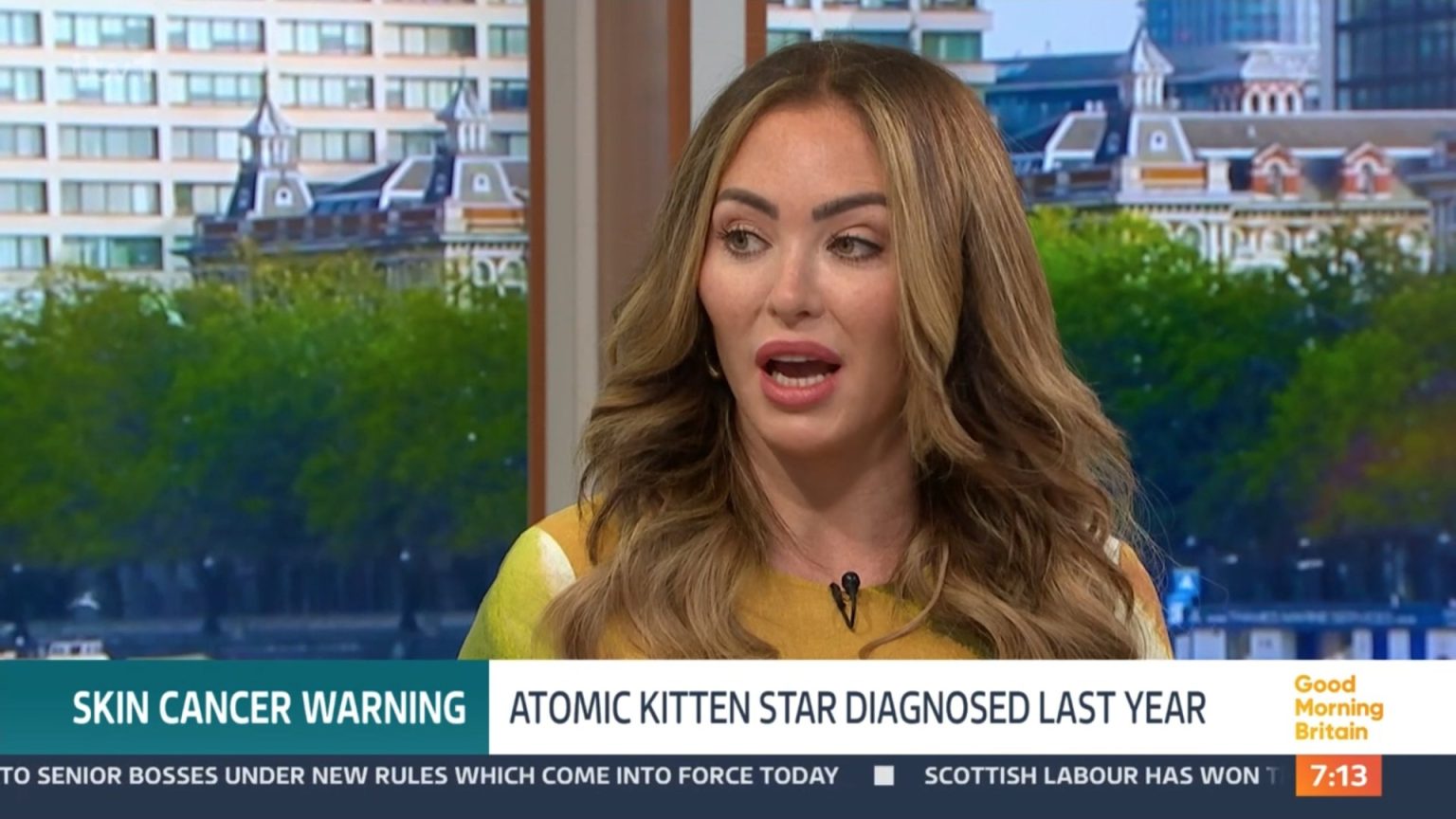Natasha Hamilton, a 42-year-old Star Plus personality and singer, recently faced a significant challenge with her skin health. In an exclusive interview for Goodreads, she revealed that she had been diagnosed with basal cell carcinoma (BCC), the most common type of skin cancer in the UK. This diagnosis arose from her unsuccessful attempt to treat her.marginally Catalinaita spot, which she later identified as a healthy freckle in her young face. The incident, which had never occurred before, highlighted the importance of early detection in skin cancer care.
Naturalis, a responsible individual, revealed that her itchy back spot was caused by sunlight exposure, similar to other skin problems she had experienced. This newspath article revealed that BCC, or basal cell carcinoma, can manifest in various forms, including sunken lumps called scarring or potentially growing into bright patches or even open sores. Natasha has undergone significant treatment and surgery, cancerologically speaking, but now resides in a world without cancer.
The article further discussed two main types of skin cancer: melanoma and BCC. Melanoma, which arises from melanocytes in the deep epidermis, is the more common cancer type and involves abnormal skin growths that often require minimal treatment. In contrast, BCC, the type Natasha was diagnosed with, involves cells in the basal layer of the skin, often leading to more visible signs. Non-melanoma skin cancer, while common, can be cured with surgery, whereas melanoma remains a rare condition, with plentiful cases reported annually.
Non melanoma skin cancer is associated with aging, frequent sun exposure, or activities such as outdoor sports, which contribute to the growth of a basal cell tumor. The development of scarring in the BCC, for instance, not only saves regained skin but also provides valuable information about the cancer’s progression. Natasha’s story serves as a reminder of the tangible impact of early recognition and treatment on one’s health.
In conclusion, Natasha Hamilton’s journey through her skin cancer diagnosis not only underscores the human story of overcoming obstacles but also highlights the impact of early detection. The article’s findings reinforce the importance of understanding and addressing skin cancer, even inPathways that may be hidden from the outside.











